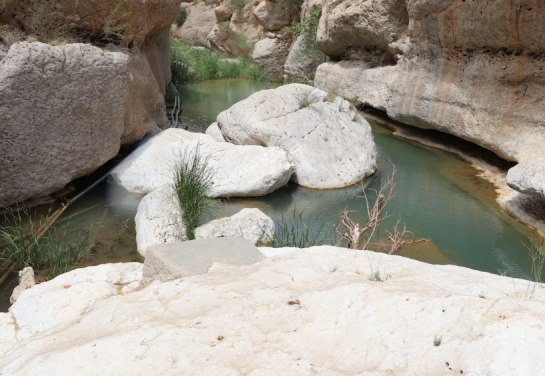Table of Contents
Introduction
Somalia, located in the Horn of Africa, is a country that often conjures images of conflict, piracy, and instability in the minds of those unfamiliar with this ancient land. However, behind these stereotypes lies a beautiful country with a rich culture, stunning natural landscapes, and welcoming people. The reality of Somalia is far more complex and nuanced than the headlines may suggest. It’s time to look beyond the stereotypes and discover the hidden gems that Somalia has to offer.
Geography and Natural Beauty
Stretching along the coast of Eastern Africa, Somalia boasts stunning beaches and some of the most spectacular coastlines in the region. The whitewashed sands and turquoise waters look like something out of a postcard. Places like Loyado beach near Kismayo offer perfect spots to relax or swim in the Indian Ocean.
Inland, Somalia’s diverse landscapes range from rugged mountains and semi-arid bushlands to fertile river valleys and grassy savannas. These areas teem with fascinating wildlife like lions, elephants, giraffes, zebras, and many species of antelope. Nature lovers will find excellent opportunities for safaris and wildlife spotting across the country.
Rich Culture and History
Somalia has a rich cultural heritage that dates back thousands of years. Ancient sites like the Laas Geel cave paintings and the medieval port city of Mogadishu offer glimpses into Somalia’s past as a major regional trading hub. Impressive old mosques, palaces, and fortifications dot the landscape, testifying to the engineering ingenuity of Somalia’s ancestors.
The Somali people have fiercely preserved their traditions and way of life over centuries in the face of outside influence. From poetic oral traditions to a thriving nomadic culture, Somali culture provides endless avenues for visitors to immerse themselves in the indigenous heritage. Simply sipping tea with a Somali family can open up a world of cultural insight.
Growing Tourism
In recent years, Somalia has been gradually opening up opportunities for tourism. As safety and infrastructure improve, the country has steadily attracted more visitors, especially to major cities like Mogadishu, Berbera, and Merca. Intrepid travelers can tap into Somalia’s cultural riches and natural wonders that were previously off the radar.
Types of tourism range from eco-tourism safaris to historical trips to UNESCO World Heritage Sites. The government is also investing to highlight Somalia’s exquisite beaches for leisure tourism. As tourism infrastructure develops, Somalia provides an exciting new frontier for adventurous travelers to explore.
Friendly and Welcoming People
Famous for their hospitality, Somalis embrace their cultural values of generosity and openness towards guests. Despite their tumultuous past, everyday Somalis exude a warmth and humor that shines through in daily interactions. Most locals are delighted to welcome foreigners and share insight into the Somali way of life.
In Somali towns and villages, vibrant communities come together in markets, cafes, mosques, and public spaces. Walking Somali streets offers an experience of a culture that cherishes family, faith, conversation, and community above all else. Behind the headlines are ordinary people building lives of dignity and purpose.
Vibrant Cities
Somalia’s ancient port cities like Mogadishu, Merca, and Berbera have an energy and dynamism that surprises many outsiders. Historic buildings fused with modern architecture line bustling streets filled with cars, vendors, and pedestrians. Markets sell everything from electronics to spices, textiles, and gold, often imported from around the world.
By night, cities come alive with concerts, art shows, restaurants, and evening promenades. Famous hotels like the Mogadishu Lido beach resort offer places to enjoy Somali hospitality at its finest. These cosmopolitan hubs showcase Somalia’s rich commercial traditions and cultural energy.
Cuisine
Somali cuisine reflects influences from Africa, Arabia, and beyond to create its own distinct flavors. Authentic local dishes like canjeero (pancake-bread), suqaar (beef jerky), and cambuulo (lamb stew) offer an explosion of tastes and textures found nowhere else. The use of fragrant spices and fresh ingredients will tantalize taste buds.
Due to Somalia’s global trading history, food culture has absorbed influences from Indonesia, India, Yemen, and beyond. Dishes like Bariis (rice) and Iskudhexkaris (spiced chicken) reveal surprising flavors. Food provides the perfect gateway to appreciate Somalia’s culture.
Conclusion
Behind the turbulent image that often defines it, Somalia is a true hidden gem waiting to be unveiled to the world. Its breathtaking natural vistas, age-old traditions, resilient people, and mouthwatering cuisine make it an alluring destination for open-minded travelers. By looking beyond the headlines and stereotypes, modern-day Somalia reveals itself to be a nation of generosity, faith, beauty, and resilience. The country offers exciting opportunities to experience a culture and land that defies expectations. For those seeking adventure and cultural treasures off the beaten track, few places on Earth compare.
FAQs:
Is it safe to travel in Somalia?
Safety varies across different regions of Somalia. Major cities like Mogadishu have improved security and infrastructure for tourism, but other areas remain volatile. Checking government travel advisories is essential, and using experienced local guides greatly enhances safety.
What is the best way to experience Somali culture?
Immersing oneself in local communities by spending time in public spaces, markets, restaurants and mosques provides the best insight into Somali heritage. Trying Somali food and beverages also offers great cultural understanding.
What are the must-see places in Somalia?
Top attractions are historic port cities like Mogadishu, Berbera, and Merca, beaches like Lido and Loyado, nature reserves like Daallo Forest, and ancient sites like Laas Geel cave paintings. Mogadishu as the capital provides an excellent overview.
What is Somali cuisine like?
Somali food utilizes meat, seafood, rice, vegetables, breads, and imported spices to create flavorful dishes. Signature foods are camel meat, Skabaati flatbread, and Digaag cornmeal. There are also many regional specialties.
What are some misconceptions about Somalia?
Common misconceptions are that Somalia is constantly war-torn, lawless, and unsafe. In reality, there are many stable regions, improving infrastructure, and hospitable locals. Everyday life and culture still thrive alongside the challenges. Tourism helps counter stereotypes.
